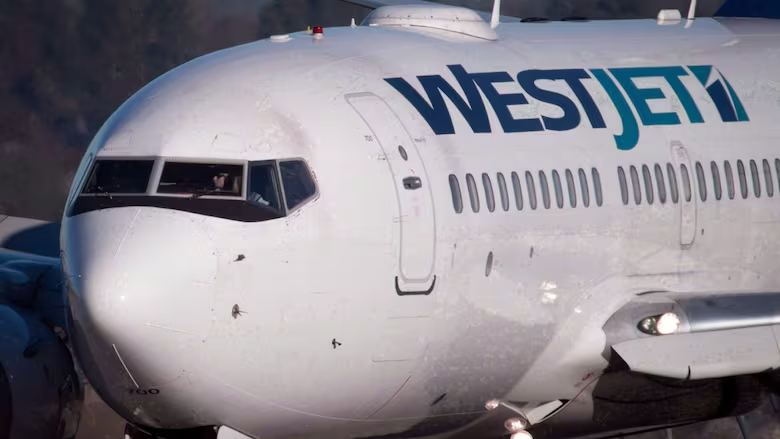Airlines rev up to offer discount airfares — but don't be blinded by the price, say experts
WestJet, Air Canada, Canada Jetlines all aiming to offer discounted air fares

Canadian airlines are lining up to offer the latest trend in air travel: cheap, no-frills fares.
But passengers should be careful what they wish for. That's because some may find the discount fares so stripped down, they're just not worth it.
"Anything you want in terms of comfort, convenience and flexibility, you can bet you're going to pay [extra] for it," warns Calgary-based aviation consultant Rick Erickson
In the U.S., customers are already discovering this hard truth when they book a new type of discount fare called "basic economy." It often excludes features some passengers see as their right, such as access to the overhead bin for carry-on and the opportunity to sit with a travel-mate.
Some find the rules so restrictive, the fare has sparked a backlash.
"The airlines call it basic economy. Misery class is more accurate," Boston Globe travel columnist Christopher Muther recently wrote.
Ultra-low fares flying into Canada
While no-frills flying is now widespread the U.S., it has yet to really take off in Canada. However, that's set to change. WestJet has announced it will launch an ultra-low-cost airline next summer.
Newcomer Canada Jetlines is also promising to launch a deep-discount carrier in June 2018. It will fly out of the Hamilton and Waterloo airports in Ontario.
"We're going to start a rebellion against high fares in Canada," announced CEO Stan Gadek earlier this month.

Air Canada is also pledging to join the pack. This week, Ben Smith, president of passenger airlines, announced that Air Canada is considering both expanding its discount carrier, Rouge, and adding a new "ultra-low-cost fare" for passengers "only focused on cost."
The airlines will join low-cost carrier Flair, which bought fledgling NewLeaf Airlines in June. Flair has had a bumpy start due to scheduling changes which forced it to cancel some flights.
But the company says it's full speed ahead as it gets set to expand with more planes and more destinations. On Dec. 15, it will add Toronto, Vancouver and Kelowna to the cities it already serves — Winnipeg, Hamilton, Edmonton and Abbotsford, B.C.
Carry-on bags not included
Flair boasts that it offers low fares such as short-haul flights ranging from $49 to $99. But the costs can still add up if passengers aren't careful.
Besides charging for a checked bag, the airline also charges passengers between $31.50 and $34.50 to store their carry-on in the overhead bin, and that's if the fee is paid online.
If travellers wait until boarding time, the fee jumps to as high as $92.

In the U.S., discount airlines Frontier and Spirit charge $30-$35 for a carry-on bag, and American Airlines and United have introduced a basic economy fare that actually bans carry-on luggage.
Passengers can still bring on board a personal bag small enough to fit under the seat. But the overhead bin is off limits, so larger luggage must be checked for $25 US.
Basic economy passengers also get little to no opportunities to select their seats, can't request upgrades, and are the last group to board the plane.
- Ultra-low-cost carriers could finally take flight in Canada
- No frills Flair Airlines should brace for bumpy ride
The discount fare has raised the ire of many passengers caught off guard by the restrictions.
In July, Jessica Suss flew basic economy and discovered whatever money she saved was obliterated because she was forced to spend $25 to check her carry-on luggage.
"It wasn't terrible, but you don't save any money, so it's kind of pointless," says the Washington, D.C.-based teacher. "I won't be flying basic economy again."
Arizona-based consumer advocate Christopher Elliott says he constantly gets complaints from basic economy customers. He argues that all air fares — no matter the price — should include the basics such as free carry-on luggage.
"Would you sell a car without tires or a steering wheel?" he says. "The airlines are going to get their money from you one way or the other."
It's up to you
Both American Airlines and United told CBC News that the basic economy fare is simply an option for people who want to cut costs.
"The idea here is to let people choose whichever fare is the best fit for them," said American Airlines spokesperson Joshua Freed in an email to CBC News.
Problem is, some people are blinded by the lowest fare, says airline analyst Erickson. And as deep discount fares fly into Canada, he warns that passengers should do their homework before choosing the no-frills route.

"You're going to have to be a very savvy, independent, well-organized individual with one little knapsack to truly take advantage of this cheap, cheap price," he says.
Consumer advocate Elliott has an even more dire warning for those shopping for bargain basement air fares.
"If it looks too good to be true, it is," he says.